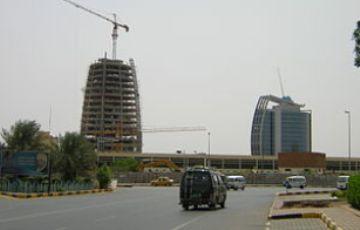Sudan’s August inflation remains above 40 as dollar’s exchange rate continues to fluctuate
September 11, 2012 (KHARTOUM) – Month-on-month inflation in Sudan rose from 41.6 percent in July to 42.1 percent in August due to soaring prices of imports whereas the value of the U.S. dollar in the black market for hard currency continued to seesaw.
 Sudan’s economy has been struggling with rising inflation and a depreciating currency since the country lost three-quarters of its oil production – the main source of state revenues and hard currency reserves – due to South Sudan secession in July last year.
Sudan’s economy has been struggling with rising inflation and a depreciating currency since the country lost three-quarters of its oil production – the main source of state revenues and hard currency reserves – due to South Sudan secession in July last year.
In response, the government scaled back fuel subsidies as part of what officials describe as austerity measures needed to plug a budget gap of 2.4 billion resulting from the loss of oil revenues.
The monthly bulletin of the country’s Central Statistics Office said that inflation rose in August by 4 percent due to increases in the prices of imports, mainly clothing and shoes which accounted for 12.3 percent of the figure.
The International Monetary Fund (IMF) which supports Sudan’s response to the economic crisis says inflation could fall significantly if the government fully implements its austerity program and improves tax collection.
Meanwhile, the price of the US dollar in the black market keeps increasing and decreasing slightly. The exchange rate went to 5.950 Sudanese pounds for selling and 5.90 for buying from the previous day’s rates of 5.950 for buying and 6.26 for selling.
Black market traders attributed the slight decrease to the shortage of supply as well as the Central Bank’s purchase of the surplus of hard currency of government-licensed FOREX bureaus. They also pointed to increased crackdown by the economic department of the National Intelligence and Security Services (NISS) on the unofficial trade.
Sudan has witnessed slight improvement in the rates gold and of U.S. dollar exchange following the announcement of a deal to resume exporting South Sudan oil via Sudan, which sparked hopes for increased supply of hard currency.
(ST)
